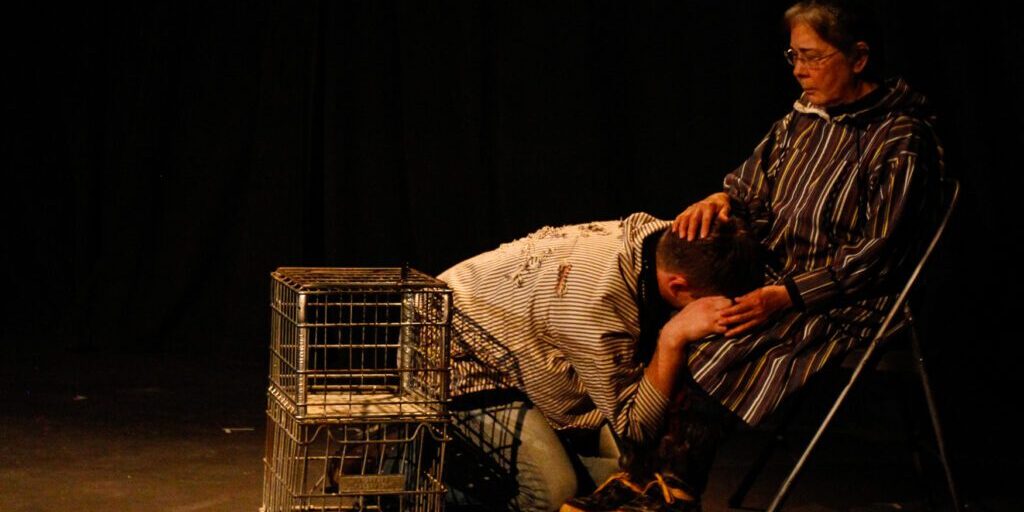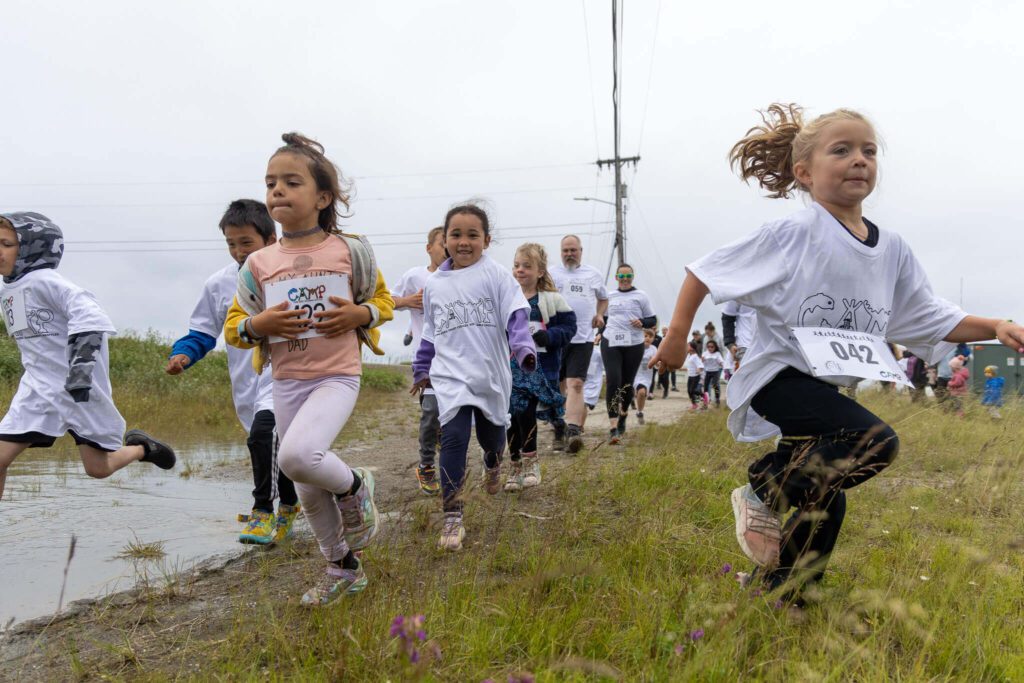When it comes to the legacy of boarding schools in Alaska, playwright Jack Dalton says some people still struggle to make sense of it — the era when mandatory schooling separated many Native students from their families and forced them to conform to Western culture. For Alaska Natives who lived through the trauma, it can be difficult to talk about. And for white people who’ve only heard about the abuse, it can be hard to imagine.
That’s why Dalton wrote Assimilation, his acclaimed play coming to Nome this weekend. Set in an alternate future, the show explores the difficult history of boarding schools — but with the roles reversed.
“In Assimilation, the boarding schools are run by the Natives, and it’s whites who are being assimilated into Native culture,” said Dalton. “I did it this way because if Native people see the play, I don’t want them to be re-traumatized. I don’t want them to see themselves on stage being abused. I also wanted white people to be able to experience — even if it’s just for two hours and 15 minutes — what it’s like to be in that kind of situation.”
Dalton said his show flips the script in another way too — by encouraging people to talk about this part of Alaska’s past rather than keep it hidden.
“Traditionally, you did not talk about bad things. And when you look at the survival requirements prior to the modern world, you can understand why it was important not to dwell on negative things — because it would actually take away from your ability to survive,” said Dalton. “Now that we’re in modern times and survival is a lot more attainable, this tradition of not talking about bad things is causing a great deal more trauma and pain. So talking about these things now is actually very, very vital to our survival.”
The emphasis on healing through discussion is new for Assimilation.
When the play premiered in Anchorage in 2010 — and when it opened for a second run in 2013 — Dalton said post-performance talkbacks allowed audience members to ask questions of the playwright and actors. During the statewide tour right now, though, he said each show is followed by a true sharing circle, where audience members can connect with one another, discussing both the play and their personal experiences.
Shawn Arnold said that type of dialogue is critical for the Nome community.
“Nome-Beltz was at one time a boarding school — two or three generations ago. And we still have that legacy here,” said Arnold, the superintendent of Nome Public Schools. “It just sounded like it was something that was meaningful for our community and for our students to hear about.”
Nome Public Schools partnered with the Nome Arts Council and Kawerak Wellness to bring the play to town. In addition to two community shows, Arnold said the Assimilation cast will perform for students at Nome-Beltz Jr/Sr High School. It will be the first time the play is performed at the site of a former boarding school.
Given its heavy material, Dalton said he was surprised — and excited — to learn the district was on board with an uncensored performance.
“The response I got was amazing,” said Dalton. “They said all of these kids know about cuss words. All of these kids know about racial slurs. All of these kids know all of these things. But we haven’t yet had a chance to put it in a context that makes it very meaningful for these young people. And the play is something that can do that.”
And not just for young people.
Elder Frank Kavairlook Sr. grew up in Elim and Koyuk before attending boarding schools in Wrangell and Nome. While he had a positive experience at William E. Beltz boarding school — the predecessor to Nome-Beltz — he said he knows classmates who did not. And now he’s looking forward to seeing the play and talking more about the impact of boarding schools.
“I know some of the ones that went through that experience and did not realize they went through something like that until now. But I’m glad that it’s being brought out in the open to help these people heal,” said Kavairlook. “I’m sure it’s something they need to release and not hold.”
Nome Elementary School will host two performances of Assimilation this weekend — Saturday, November 14th at 7 p.m., and Sunday, November 15th at 2 p.m. Admission is free, but donations will be accepted. Nome-Beltz will host the third performance on Monday, November 16, and then, the play’s tour will continue, including a performance in Unalakleet on Dec. 5.







